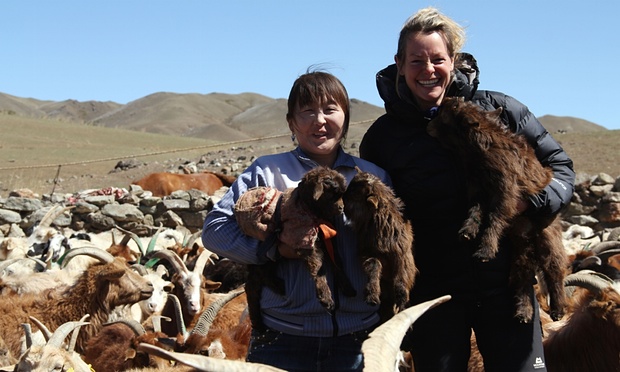Pragmatic Nomadism: Mongolian-Style Resilience

I have learned from nomads as a role model for modern-day resilience for many years, drawing mainly on my experience leading twelve groups with Bedouin in the Tunisian Sahara. Kate Humble’s recent BBC2 series on nomads offers vivid insights from across the world, and I enjoyed her programme on nomads in the Gobi desert, Mongolia.
As she said, this is ‘pragmatic nomadism’, which seems remarkably successful at keeping the heart of their traditions, in combination with modern life. Kate stayed with a family who live in a yurt, moving nomadically with their herd of goats, horses and yaks, wearing traditional clothes, still praying for protection at Buddhist shrines.
And alongside the traditions, these are nomads with a 4×4 and PV panels outside their yurt, and with electric light, TV and mobile phone inside. Their daily life is remote and deeply connected to nature, yet they are at ease driving to the nearest town, selling their cashmere goat wool, and shopping at a supermarket.
The current fairly healthy situation with Mongolian nomads is really remarkable, because for many decades under Communist rule nomadism was outlawed. When democracy arrived in the 1990’s around one-third of the whole population chose to return to a nomadic way of life. This fairly recent return to the land may help to explain how well the old and new combined.
The head of the family Kate stayed with is Chimed, a 78 year old women, who is bright and clear, welcoming life as a blessing. Unlike my experiences with Bedouin nomads in the Sahara, there was more sharing of tasks between men and women: everyone helps tend the animals, and often the women ride out on the mountains to keep an eye on the flocks. However, it seems appropriate that it is the men who do the castration of the young male animals…
Mongolia’s oil boom is clearly having some impact: two of this family’s four sons have left the land to work in mining. But I’d share Kate Humble’s “cautious optimism” that many Gobi nomads will continue for many years, thanks to their shrewd combining of ancient and modern.
Click here to watch Kate’s Mongolian episode on BBC2 iplayer.
